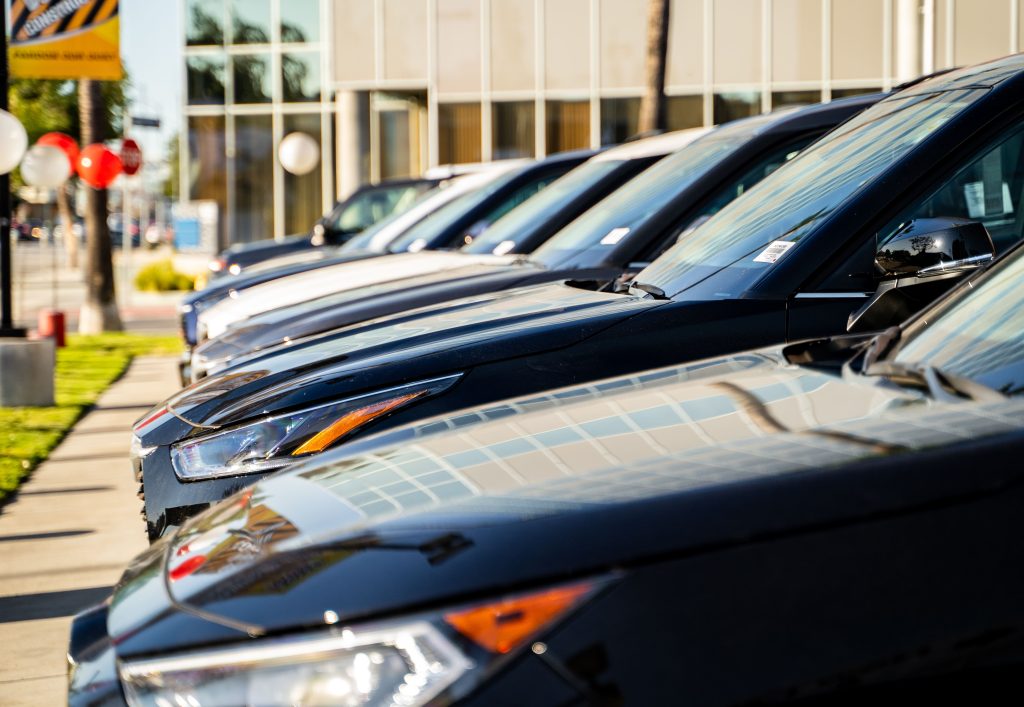Factors to Consider When Choosing Between Used and New Cars
Posted Monday, Nov 20, 2023

Buying a car is a heavy financial investment, and therefore a significant decision where you have to carefully consider several factors. A significant choice you'll have to make is whether to buy a new or used vehicle.
Both options have their merits and drawbacks, and the choice you make should align with your budget, preferences, and specific needs.
In this article, we'll explore the multitude of factors to consider when deciding between a used or new car.
Budget
Let's begin with the most critical factor: your budget. Your financial situation plays a pivotal role in determining whether you should opt for a new or used car.
New cars come with a higher price tag, primarily because they have never been driven and often feature the latest technology and design. If you're looking for a brand-new vehicle with the latest features, be prepared to spend more.
Pre-owned vehicles are more affordable than new ones. They've already experienced their initial depreciation, making them an attractive option for individuals on a tighter budget.
Consider your budget carefully. Determine how much you can afford by factoring in down payment, monthly finance charges, insurance, and ongoing maintenance expenditures.
Depreciation
One of the key financial aspects to consider is depreciation. Depreciation is the gradual loss of a car's value over time, and it varies greatly between new and old vehicles.
New cars experience the most significant depreciation within the first few years. On average, a new car can lose about 20-30% of its value in the first year and up to 50% or more within three years. This depreciation can be a substantial financial hit.
The steepest part of the depreciation curve for used autos has already passed. They are still depreciating, but at a considerably slower rate. As a result, buying a used car can be a more financially prudent choice in the long run.
Consider how long you would like to maintain the vehicle. If you plan to change cars frequently, the initial depreciation of a new car might not affect you as much. However, if you intend to keep your vehicle for the long haul, used cars offer a more favorable depreciation profile.
Reliability
The reliability of your car is crucial to your peace of mind and the overall ownership experience. New and used cars offer different levels of reliability.
New cars often come with warranties that cover potential defects and repairs for the first few years of ownership. This warranty provides a sense of security and can reduce the cost of unforeseen repairs.
Used cars may or may not have a warranty, depending on their age, mileage, and whether you purchase a certified pre-owned (CPO) vehicle. However, the history of a used car can be less predictable, and you might be responsible for repair costs.
Research the reliability of specific makes and models. Consumer reports, online reviews, and manufacturer reputation can all be valuable sources of information. Also, consider having a trusted mechanic inspect any used car you're considering to assess its current condition.
Maintenance & Repairs
Maintenance and repair costs are ongoing expenses that you'll need to account for in your car ownership journey. New and used cars have distinct profiles in this regard.
New cars typically require less maintenance and fewer repairs in the early years of ownership. They are under warranty, and many components are brand new, which reduces the likelihood of breakdowns.
Used cars, especially those with high mileage or questionable maintenance history, may require more frequent attention. Older components can wear out, and you may face a higher risk of needing repairs.
To make an informed decision, research the expected maintenance costs for the specific vehicles you're considering. It's important to understand the long-term expenses associated with your chosen car.
Features & Technology
The technology and features available in your car can significantly impact your driving experience. New and used cars offer different levels of technology and modern conveniences.
New cars come with the latest technology, safety features, and modern conveniences. If having the most up-to-date features is essential to you, a new car may be the way to go.
Used cars are not necessarily devoid of technology. Depending on the make, model, and trim, you can find used cars with many desirable features at a lower price point. Some late-model used cars might even have features that are still considered quite advanced.
Assess your priorities and what features are important to you. If you're willing to forgo the very latest technology, you can often find excellent deals on used cars with valuable features.
Insurance Costs
The cost of insurance can vary depending on the age and value of the car you choose. Insurance is a recurring expense that should factor into your decision-making process.
New cars typically have higher insurance premiums because of their higher value. Insurers need to account for the cost of replacing a new vehicle in case of theft or accident.
Used cars usually come with lower insurance costs, as their lower value reduces the potential payout in the event of a loss.
Obtain insurance quotes for the specific vehicles you're considering to understand how insurance costs may vary. This will help your budget more accurately.
Environmental Impact
If you're concerned about the environment, the choice between a new and used car can have implications for sustainability.
Newer cars often have more efficient engines and lower emissions. They might be equipped with the latest eco-friendly technologies, making them a greener choice.
Buying a used car contributes to sustainability by reducing the demand for new car production. It minimizes the environmental impact associated with the manufacturing process of new vehicles.
Evaluate your environmental concerns and the role you want your car choice to play in sustainability.
The Verdict
Deciding between a new or used car is a substantial choice that requires careful thought and consideration of various factors. Your budget, depreciation tolerance, need for reliability, and desire for modern features should guide your decision. Both new and used cars have their merits, and the right choice for you depends on your unique situation.
If you’re looking into buying a used car, you can visit the Thrive Auto Sales website to find a large inventory of well-maintained used cars. Whether you have a specific car in mind or just want to browse, you can use the car finder feature, and get online price quotes or schedule test drives.
The dealership also offers auto financing regardless of credit score. If you have any further queries, call us now at dial (845) 549-3042!
